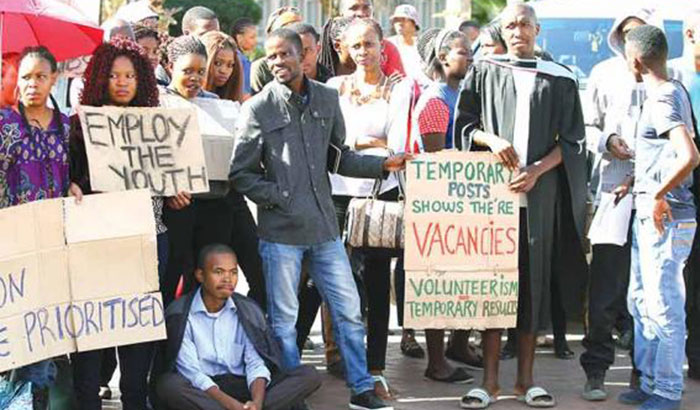There are no products in your shopping cart.
| 0 Items | £0.00 |


NIGERIA now has a total of 23.23m people out of work giving the country the second highest unemployment rate in the world according to recent data just published by the National Bureau of Statistics (NBS).
According to the NBS, the jobless rate in Nigeria rose to 33.3% in the three months of this year, up from 27.1% in the second quarter of 2020. Apparently, one third of Nigeria's 69.7m-strong labour force in Nigeria either did nothing or worked for less than 20 hours a week, making them unemployed, according to the Nigerian definition.
In addition, another 15.9m worked less than 40 hours a week, making them under-employed. With this latest development, Nigeria has surpassed South Africa on a list of 82 countries whose unemployment rates are tracked considered high, with Namibia leading the list with a 33.4% rate.
Nigeria’s jobless rate has more than quadrupled over the last five years as the economy went through two recessions, casting a shadow over the efforts to implement policies to drive growth and create jobs by President Muhammadu Buhari’s administration. This lack of jobs adds to pressure on consumers in a country where food prices rose more than 20% year-on-year in January and authorities struggle to bring insecurity driven by violent insurgency attacks and kidnappings under control.
Nigeria’s finances have been hit hard by last year’s drop in global oil prices as the commodity accounts for over 90% of foreign-exchange earnings and about half of government income. More than 60% of Nigeria’s working-age population is younger than 34, giving the economy great potential if they could be put to work.
According to the NBS data, unemployment among people aged 15 to 24 stood at 53.4% in the fourth quarter of 2020 and at 37.2% for people aged 25 to 34. To make matters worse, the jobless rate for women was 35.2% compared with 31.8% for men.
International Monetary Fund (IMF) officials believe that the recovery of the economy will be slow, with growth seen at 1.5% this year after last year’s 1.9% contraction. According to the IMF, output will only recover to pre-pandemic levels in 2022.
Nigeria is expected to be the world’s third most-populous country by 2050, with over 300m people, according to the United Nations. With the population growing by 2.6% annually, the Nigerian economy needs to grow by at least 3% a year just to prevent a drop in living standards.